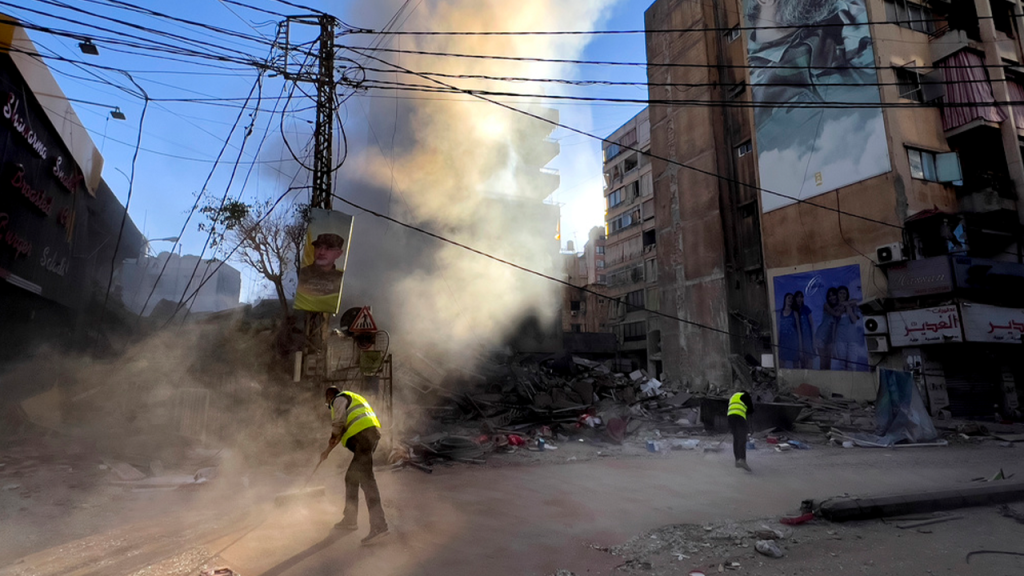The Israeli Defense Forces are planning to conduct airstrikes in Lebanon against financial institutions associated with the Hezbollah group, which is backed by Iran. The strikes will specifically target al-Qard al-Hassan, a unit within Hezbollah that is used to fund terrorist activities such as paying operatives and buying arms. This registered nonprofit organization is sanctioned by the U.S. and Saudi Arabia and provides financial services to Lebanese civilians. The IDF has issued evacuation orders for civilians near these financial institutions and plans to target not only centers in Beirut but also other Hezbollah strongholds in Lebanon. The goal is to disrupt Hezbollah’s financial support for the ongoing conflict with Israel, which escalated in October 2023 when Hamas militants attacked Israel, resulting in casualties and hostages.
A senior intelligence official disclosed that while not all of Hezbollah’s funds are held in these financial institutions, the airstrikes are expected to significantly impact the group’s economic capabilities. The official pointed out that many Lebanese civilians, predominantly Shias, utilize this banking system, and several branches in Beirut are likely to be targeted. The tensions between Israel and Hezbollah have been escalating over the war in Gaza, leading to all-out conflict last month and the deployment of Israeli ground troops into Lebanon earlier this month. The decision to conduct airstrikes in Lebanon comes after U.S. Defense Secretary Lloyd Austin expressed concerns about the high number of civilian casualties in the Israel-Hezbollah war and urged Israel to scale back some of its strikes, particularly around Beirut.
Iran, a supporter of Hezbollah, is being investigated by the United States for allegedly leaking classified documents that indicated Israel was preparing for a military strike in response to Iran’s ballistic missile attack on October 1. The U.S. officials who disclosed this information requested anonymity as they were not authorized to discuss the matter publicly. The situation remains fluid and continues to develop, with updates expected in the near future. Israeli Prime Minister Benjamin Netanyahu has vowed to retaliate following an assassination attempt by Hezbollah, further heightening tensions in the region. The IDF has emphasized that their mission is not over until hostages are returned and they will continue to take action to ensure Israel’s security.
The IDF’s planned airstrikes in Lebanon are intended to strike at the heart of Hezbollah’s financial support network and weaken the group’s ability to carry out terrorist activities. The decision to target al-Qard al-Hassan, a key source of funding for Hezbollah, is part of a broader strategy to disrupt the group’s operations and reduce its influence in the region. The IDF has warned civilians near the targeted financial institutions to evacuate, signaling the seriousness of the upcoming military action. The wider implications of these airstrikes on the ongoing conflict between Israel and Hezbollah remain to be seen, but the IDF’s determination to continue its mission until all hostages are returned underscores the gravity of the situation.
The conflict between Israel and Hezbollah has been characterized by escalating tensions, culminating in a full-scale war that has drawn in regional players such as Iran and the United States. The involvement of these external powers, along with the complex dynamics of the conflict, adds another layer of complexity to an already volatile situation. The IDF’s decision to escalate military action against Hezbollah signals a willingness to confront the group head-on and disrupt its operations in Lebanon. As the situation continues to evolve, the impact of these airstrikes on both Hezbollah and the wider region remains uncertain. The ongoing conflict between Israel and Hezbollah underscores the challenges of managing regional instability and the complex web of alliances and interests at play.


